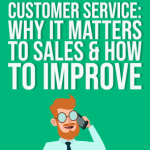98.7% Of all customers recommend us, we're so confident about our results we publish all reviews and stats
View Live Stats View Reviews
 Unlocking Business Potential with Customer Profiling
Unlocking Business Potential with Customer Profiling
Mastering Customer Understanding for Business Growth
Face to face / Online public schedule & onsite training. Restaurant lunch included at STL venues.
From £495 List price £650
- 1 day Instructor-led workshop
- Courses never cancelled
- Restaurant lunch
Syllabus
Who is this course for?
This one-day course is designed for business professionals, including sales and marketing managers, customer service leaders, and business development executives, who are eager to deepen their understanding of customer behaviour and leverage this knowledge to drive business growth.
It is also suitable for entrepreneurs and small business owners looking to build stronger relationships with their customers and enhance their market strategies.

Benefits
Attending this course will provide participants with actionable insights and practical skills to better understand and engage with their customers, leading to improved customer satisfaction and loyalty.By learning to effectively segment and profile customers, attendees can tailor their marketing and sales strategies to meet specific customer needs, ultimately maximising business opportunities and driving growth.
Course Syllabus
Understanding Customer Behaviour
Real-time customer behaviour tracking
Analysing customer interactions across various touchpoints
Predicting customer needs based on behavioural patterns
Case studies on effective customer interaction analysis
Customer Segmentation and Profiling
Identifying different customer categories
Segmentation based on purchase behaviour, geography, and demographics
Developing detailed customer profiles
Scenarios to create customer profiles
Leveraging Social Media for Customer Engagement
Importance of social media in customer interactions
Strategies for effective social media engagement
Aggregating user data across social media platforms
Enhancing Customer Service Interactions
Using customer service interactions to gather insights
Techniques for effective communication with customers
Building a customer-focused service strategy
Developing a questionnaire for customer feedback
Implementing Customer Data for Business Growth
Using customer data to drive marketing and sales strategies
Personalising customer experiences based on data insights
Measuring the effectiveness of customer-centric strategies
Prices & Dates
What you get
"What do I get on the day?"
Arguably, the most experienced and highest motivated trainers.
Face-to-face training
Training is held in our modern, comfortable, air-conditioned suites.
Lunch, breaks and timing
A hot lunch is provided at local restaurants near our venues:
- Bloomsbury
- Limehouse
Courses start at 9:30am.
Please aim to be with us for 9:15am.
Browse the sample menus and view joining information (how to get to our venues).
Refreshments
Available throughout the day:
- Hot beverages
- Clean, filtered water
- Biscuits
Online training
Regular breaks throughout the day.
Learning tools
In-course handbook
Contains unit objectives, exercises and space to write notes
24 months access to trainers
Your questions answered on our support forum.
Training formats & Services
Training Formats & Services
|
Training manual sample
Below are some extracts from our Unlocking Business Potential with Customer Profiling manual.
Developing Effective Questioning Skills
To maximize the benefits of questioning
techniques, one must practice active listening, be patient, and avoid making
assumptions. Tailoring questions to the customer’s context and being genuinely
interested in their responses are key to effective communication.
- Active
Listening: Pay full attention to the customer,
showing that you value their input.
- Patience:
Allow the customer time to think and respond without rushing them.
- Avoid
Assumptions: Don’t assume you know what the customer
will say; let them express their thoughts fully.
- Contextual
Questions: Frame your questions based on the
customer’s specific situation and needs.
- Genuine
Interest: Show that you care about the customer’s
answers and are not just going through the motions.
Applying Questioning Techniques
In practice, questioning techniques can be
applied in various customer interactions to enhance understanding and service
quality.
- Initial
Contact: Use open-ended questions to gather
broad information about the customer’s needs.
- Problem-Solving:
Employ probing questions to get to the root of any issues the customer is
facing.
- Feedback
Gathering: Ask reflective questions to confirm
your understanding of the customer’s feedback.
- Sales
Conversations: Utilize leading questions to steer the
customer towards realizing the benefits of your product or service.
- Customer
Follow-Up: Rhetorical questions can be used to
remind customers of the value they’ve received and to think about future
needs.
Challenges and Solutions
While questioning techniques are powerful,
they also come with challenges that need to be navigated carefully.
- Over-Questioning:
Bombarding customers with too many questions can overwhelm them. Solution:
Be strategic and purposeful with your questions.
- Misinterpretation:
Customers may misunderstand the intent behind a question. Solution:
Clarify your questions and ensure they are well-phrased.
- Defensiveness: Some
questions may put customers on the defensive. Solution: Frame questions
positively and focus on the customer’s comfort.
Conclusion
Mastering questioning techniques is essential
for any customer care professional. It enhances communication, fosters trust,
and leads to better customer experiences. By understanding and applying
different types of questions, professionals can effectively engage with
customers and drive business success.
Thanks. Your download will begin shortly.
Please help us
Share or create a link to this manual today!
Just follow these simple instructions...








